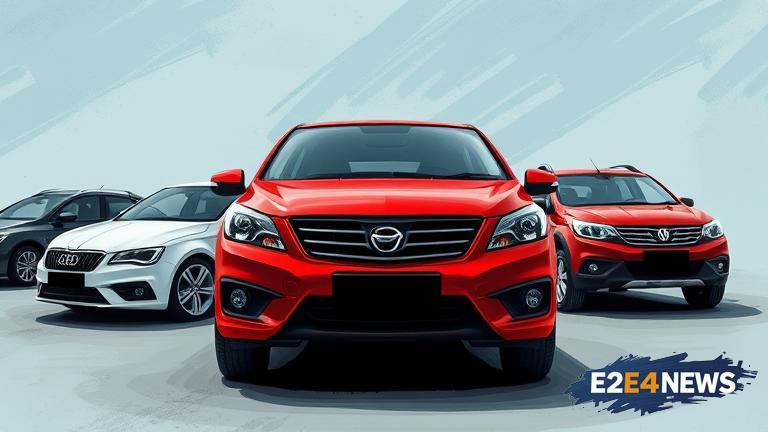A joint meeting of the Senate panels was held recently, where local car manufacturers in Pakistan expressed their dissatisfaction with the government’s policies. The carmakers warned that if their demands are not met, they will be forced to start importing used vehicles, which could have severe consequences for the country’s automotive industry. The manufacturers are seeking relief from the government in the form of reduced duties and taxes on imported parts and components. They claim that the current tax regime is making it difficult for them to compete with imported used vehicles, which are becoming increasingly popular in the country. The carmakers also complained about the lack of support from the government, citing the example of other countries where the government provides subsidies and incentives to local manufacturers. They argued that the government’s policies are biased towards imported vehicles, which is hurting the local industry. The meeting was attended by representatives from various car manufacturers, including Honda, Toyota, and Suzuki, who all expressed their concerns and frustrations with the government’s policies. The carmakers also presented data and statistics to support their claims, showing that the sales of local vehicles have been declining in recent years due to the increasing competition from imported used vehicles. They warned that if the government does not take immediate action to address their concerns, the local industry could collapse, resulting in significant job losses and economic instability. The government has been urged to review its policies and provide support to the local industry, including reducing duties and taxes on imported parts and components. The carmakers also suggested that the government should impose stricter regulations on the import of used vehicles, including stricter emission and safety standards. They argued that this would help to level the playing field and give local manufacturers a fair chance to compete. The meeting ended with a resolution to form a committee to investigate the matter and provide recommendations to the government. The committee will comprise representatives from the car manufacturers, the government, and other stakeholders. The carmakers have threatened to take drastic measures if their demands are not met, including importing used vehicles and reducing production. The government has been given an ultimatum to respond to the carmakers’ demands within a specified timeframe. The outcome of the meeting has sparked concerns over the future of the country’s automotive industry, with many experts warning that the government’s policies could have far-reaching consequences. The carmakers’ threat to import used vehicles has also raised concerns over the potential impact on the environment and road safety. The government has been urged to take a balanced approach, considering the interests of both the local industry and the consumers. The meeting has highlighted the need for a comprehensive policy framework to support the local automotive industry, including incentives, subsidies, and stricter regulations on imported vehicles. The government’s response to the carmakers’ demands will be closely watched, as it could have significant implications for the country’s economy and industry. The carmakers’ warning has also sparked a debate over the role of the government in supporting local industries, with many arguing that the government should provide more support to domestic manufacturers. The meeting has also raised questions over the government’s commitment to promoting the local automotive industry, with many experts warning that the country’s industrial policy is in need of a major overhaul.
